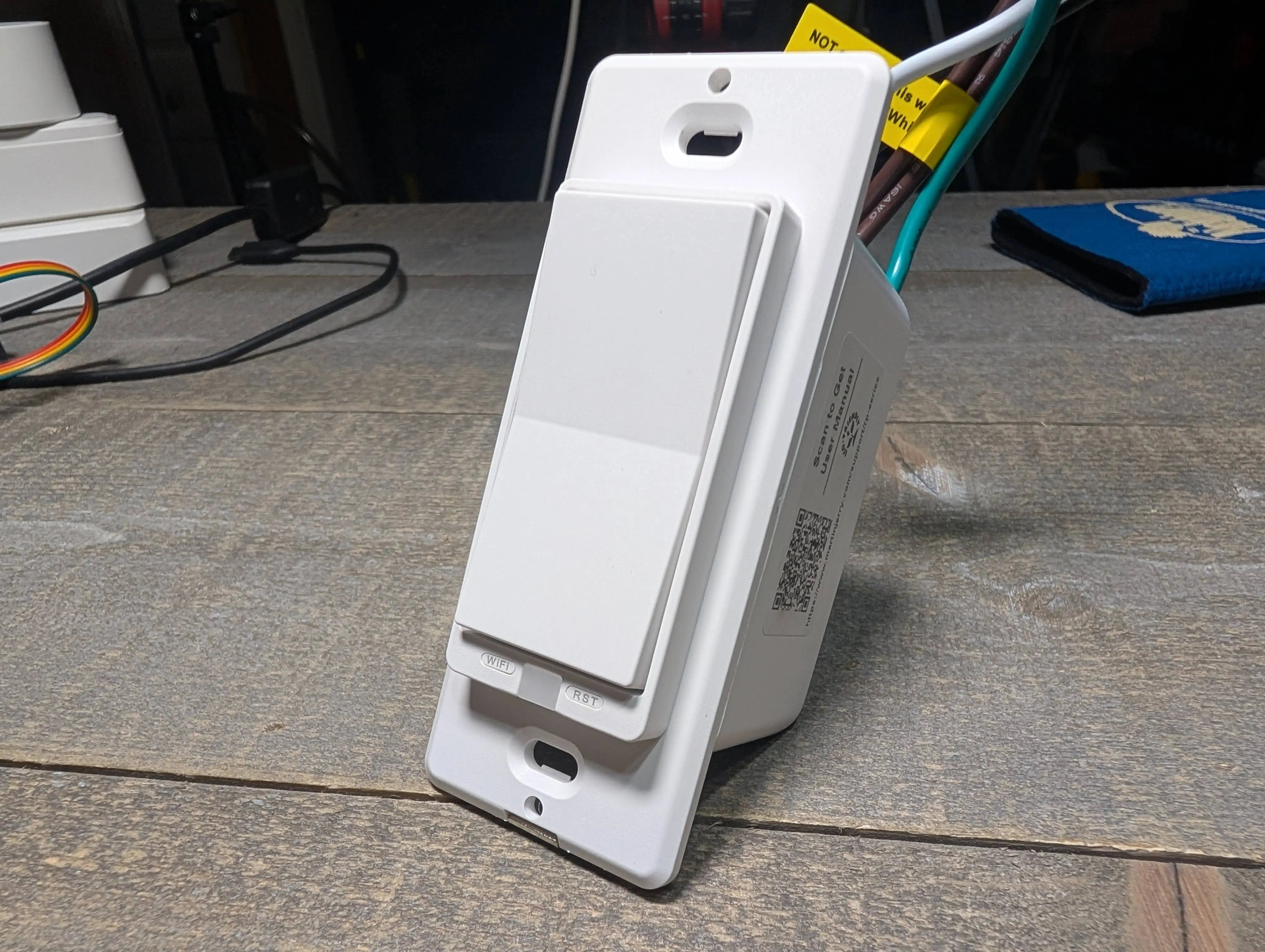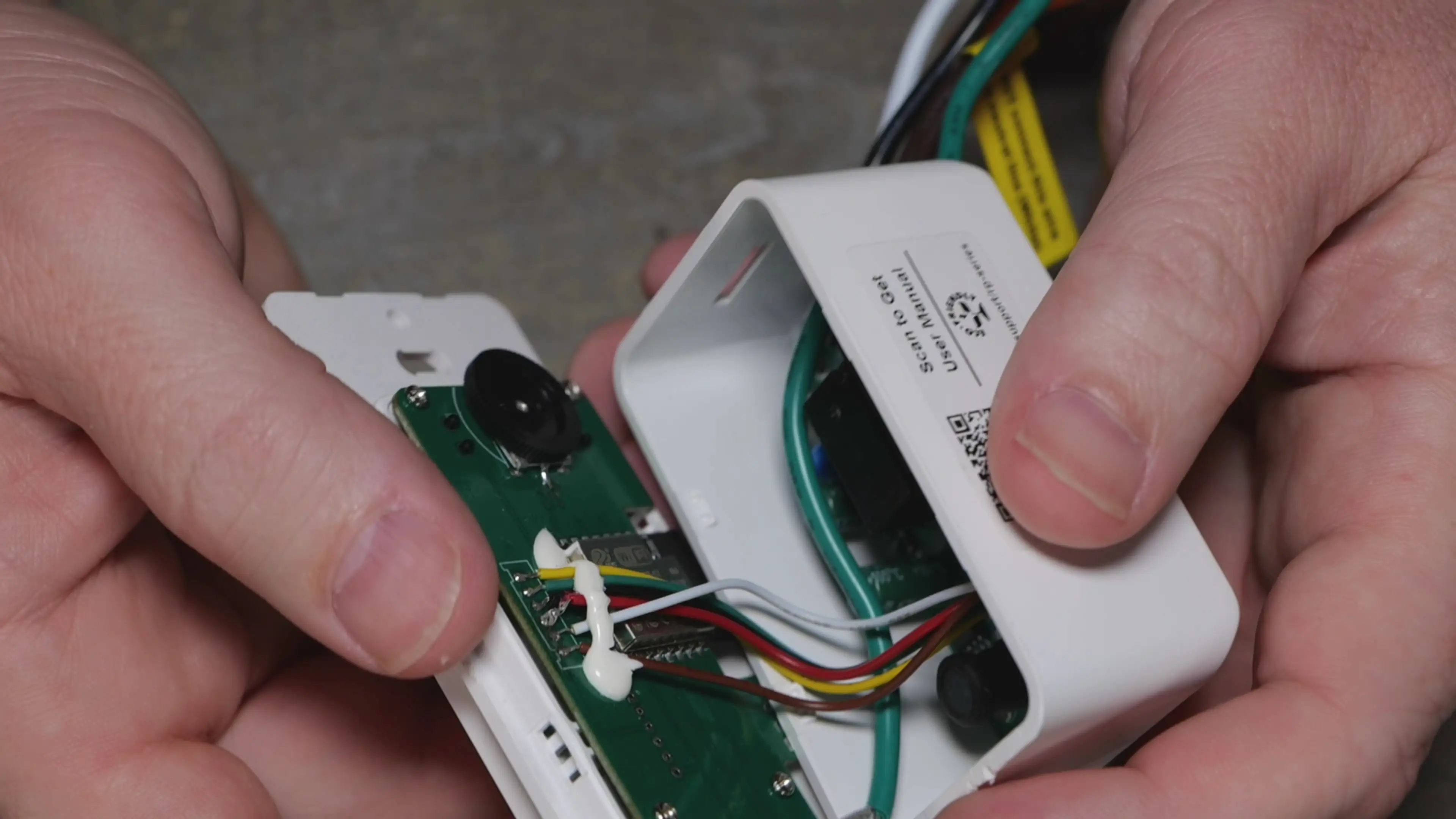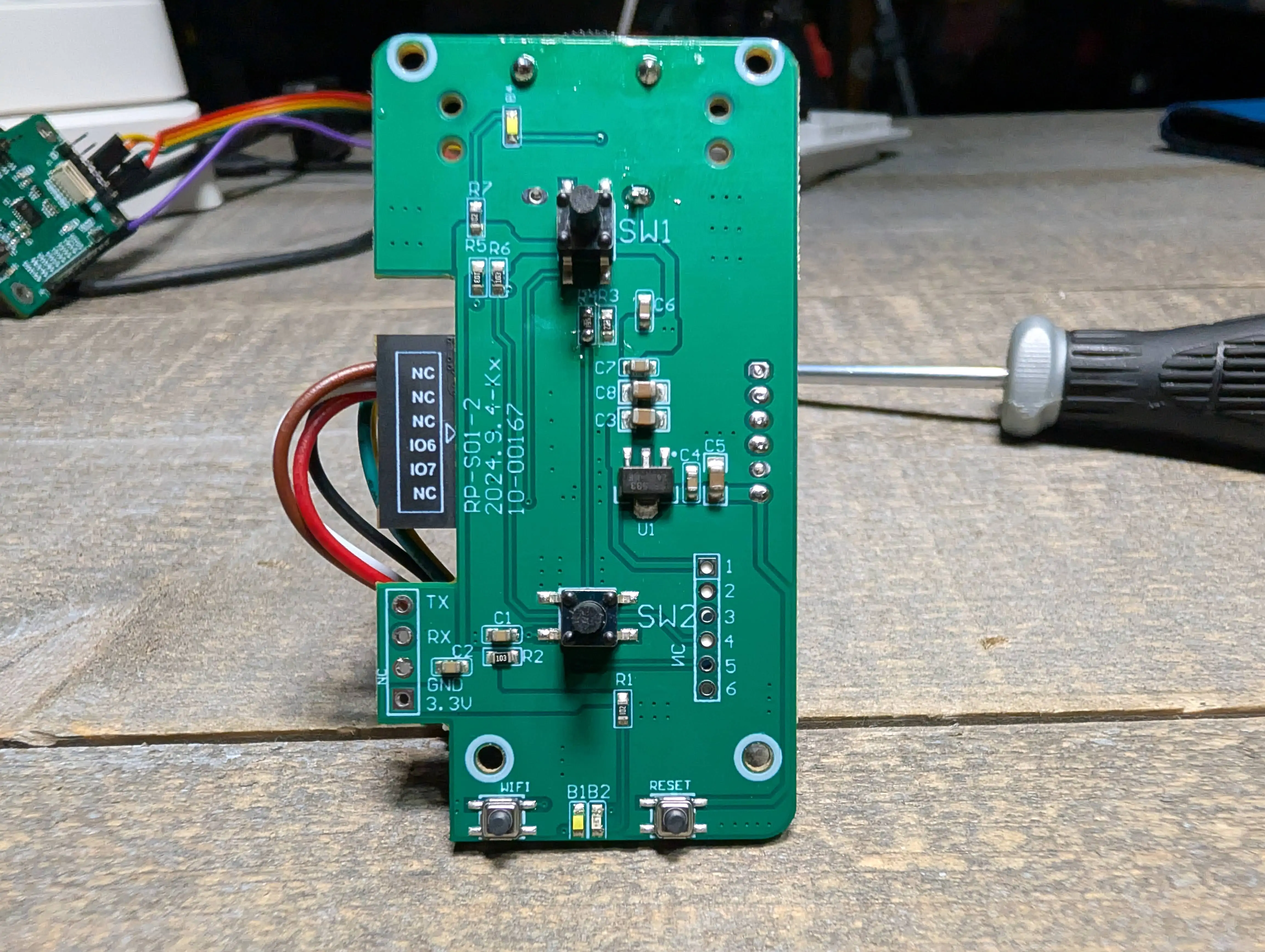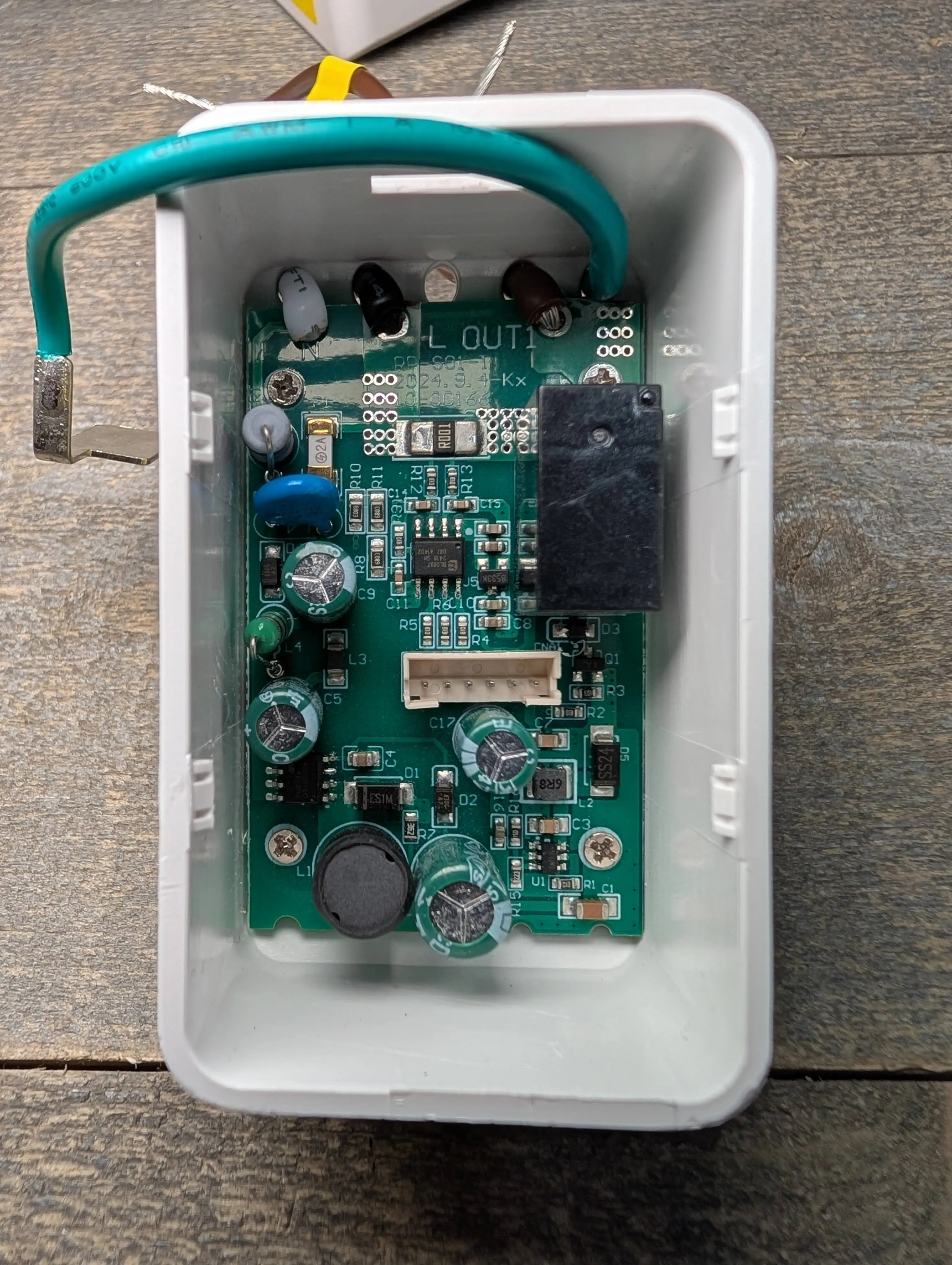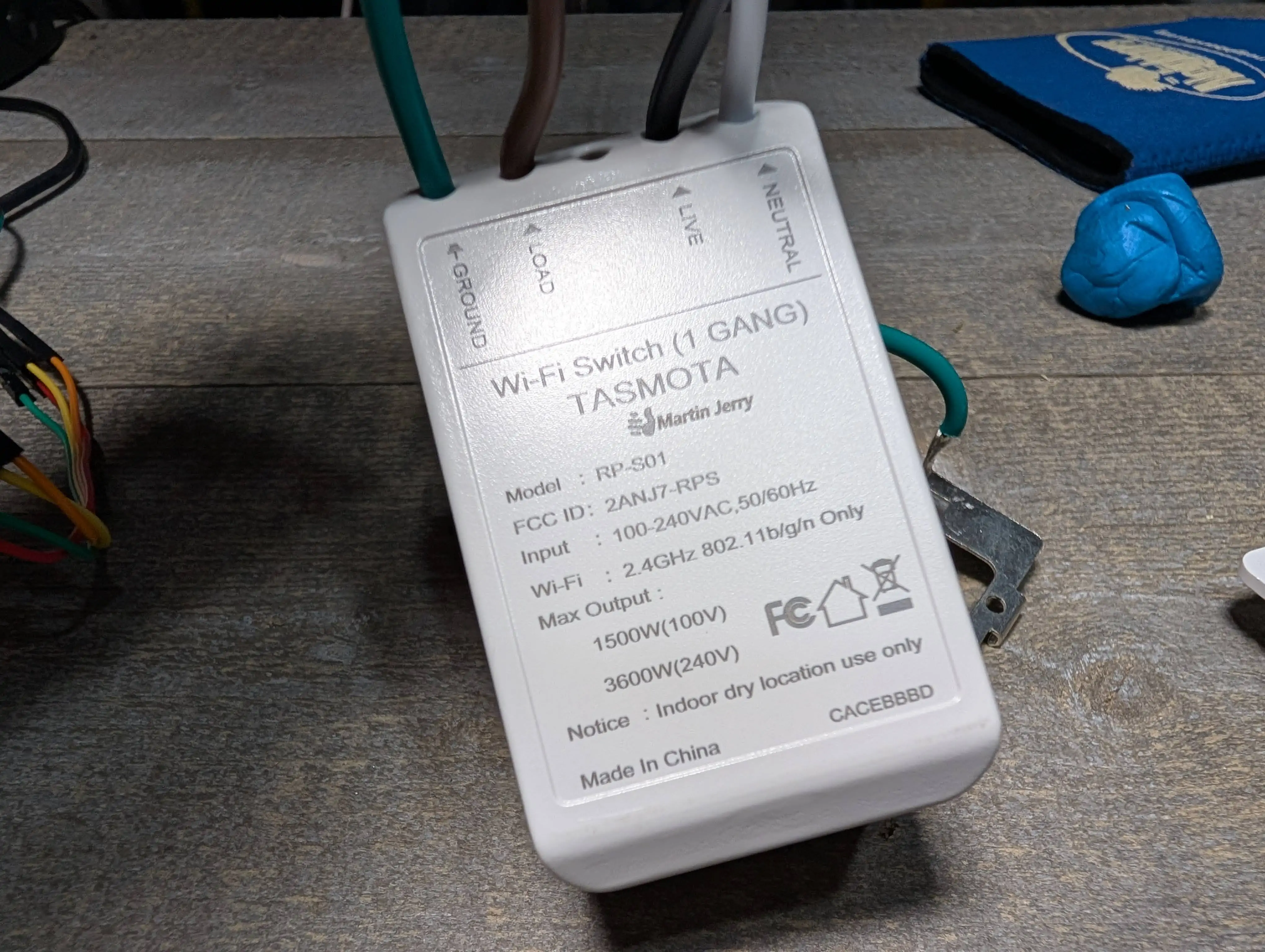Martin Jerry RP-S01 (Single Relay)
Single Relay single width Decora US switch with Power Monitoring.
This switch has a White and Red nightlight in a rocker paddle design. There is a small LEDs behind the top rocker to indicate if Relay 1 is on. The internal relay is rated at only 10 amps, keep this in mind when combining it with a 15 or 20 amp circuit breaker. The white night light brightness is controlled via the dimmer wheel on the top, the red night light is controllable via software. Both Up & Down rocker buttons are tied into the same input on the ESP32.
The switch comes preflashed with TASMOTA and Matter enabled on a 4MB ESP32-C3 module. If ESPHome is desired, the switch can easily be converted with a TTL USB adapter and dupont jumpers. NO Soldering is necessary! See Pics Section Below.
YES, you can use this switch as an ESPHome Bluetooth Proxy.
Purchase - Pre-Flashed with TASMOTA Amazon
Detailed video integration into Home Assistant and Teardown
Tasmota Template
{"NAME":"RP-S01 Switch","GPIO":[0,0,2624,2656,2720,320,576,0,448,0,0,0,0,0,0,0,0,0,224,32,0,0],"FLAG":0,"BASE":1}
GPIO Layout
| GPIO | Component | Description |
|---|---|---|
| GPIO02 | HLWBL SEL_i | Power Monitoring |
| GPIO03 | HLWBL CF1 | Power Monitoring |
| GPIO04 | BL0937 CF | Power Monitoring |
| GPIO05 | LED_i | LED 1 |
| GPIO08 | PWM_i | Red Night Light |
| GPIO18 | Relay1 | Load 1 Wire |
| GPIO19 | Button1 | Up/Down Buttons |
TASMOTA Settings
| Setting | Description |
|---|---|
| setoption13 1 | Set Buttons to respond instantly and disable multipress (optional) |
| setoption30 1 | Sets domain to a light (optional) |
TASMOTA Rules
None necessary.
Converting to ESPHome
No soldering is necessary to convert the device to ESPHome!
Due to the different flash partitions of ESPHome and TASMOTA, a serial reflash is the best solution to upgrade the switch. The switch has in an internal pin header with the dupont jumper holes broken out for you. They did this for us! You need a USB TTL adapter adapter such as the "little red guy" and a set of female to male dupont jumper wires.
Use the YAML below to add the device to the ESPHome compiler dashboard and build the device.
Download the factory full image bin file.
Connect the dupont wires as shown in the Pics Section below and attach the USB TTL to the computer. GPIO 9 needs to be grounded for at least the first few seconds of power up.
Use the ESPHome installer to install your bin file created above.
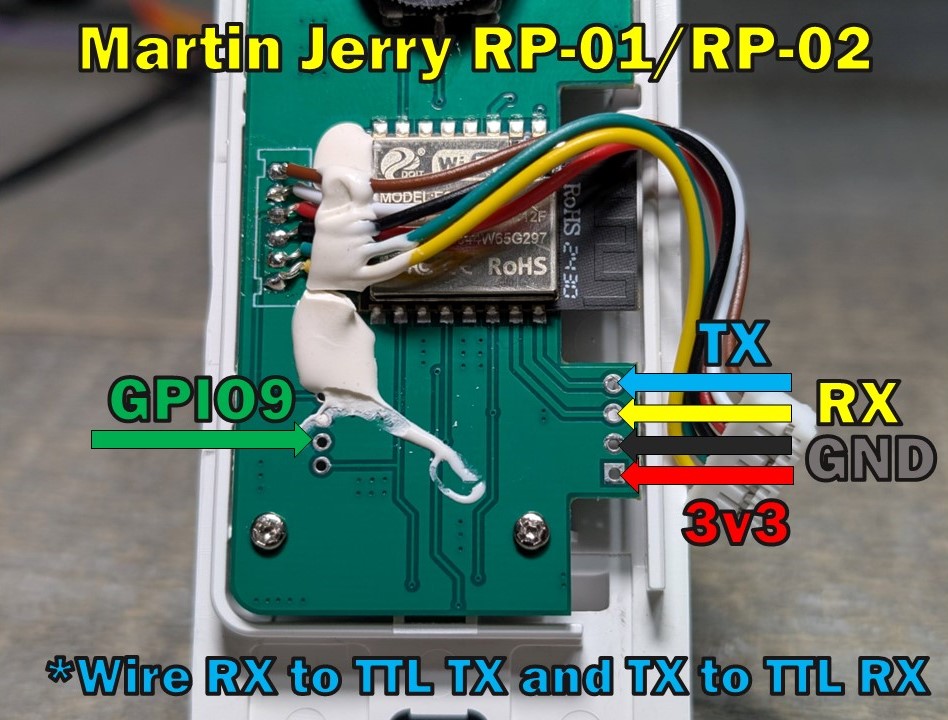
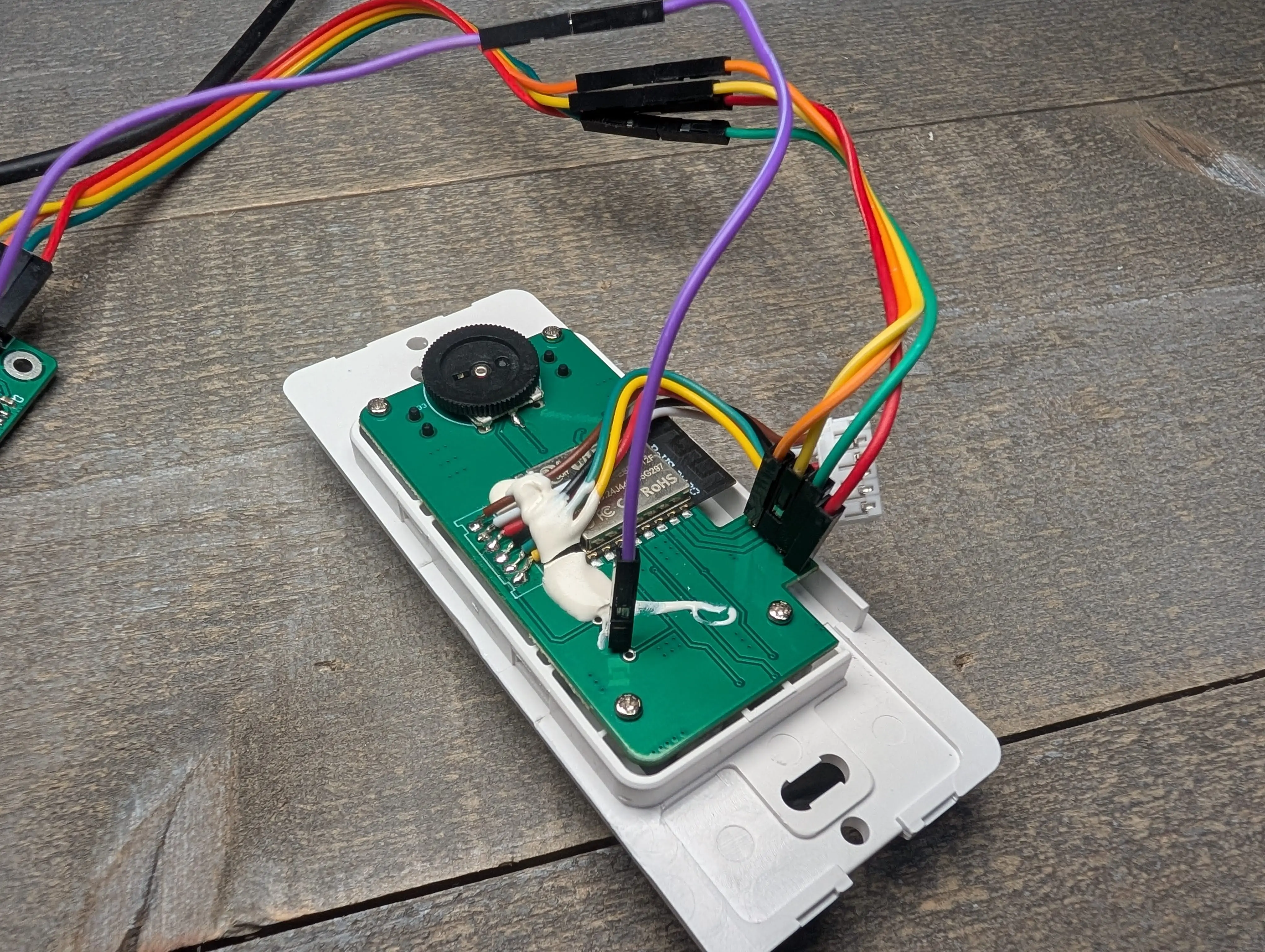
ESPHome YAML
substitutions:
# Higher value gives lower watt readout
current_res: "0.00106"
# Lower value gives lower voltage readout
voltage_div: "1570"
current_mul: "0.914285714285714" # Muliplier for current sensor filter. Calibrate for higher accuracy.
esphome:
name: sw-mj-1chan
friendly_name: sw-mj-1chan
platformio_options:
board_build.mcu: esp32c3
board_build.variant: esp32c3
# added the line below to prevent bootloops when flashing modern bin via serial
board_build.flash_mode: dio
esp32:
board: esp32-c3-devkitm-1
framework:
type: esp-idf
sdkconfig_options:
CONFIG_BT_BLE_50_FEATURES_SUPPORTED: y
CONFIG_BT_BLE_42_FEATURES_SUPPORTED: y
CONFIG_ESP_TASK_WDT_TIMEOUT_S: "10"
logger:
api:
captive_portal:
ota:
- platform: esphome
## Uncomment the section below to enable Bluetooh Proxy Support
#esp32_ble_tracker:
# scan_parameters:
# active: true
#bluetooth_proxy:
# active: true
wifi:
ssid: !secret wifi_ssid
password: !secret wifi_password
ap:
sensor:
- platform: hlw8012
model: BL0937
sel_pin:
number: GPIO02
inverted: true
cf_pin: GPIO04
cf1_pin: GPIO03
change_mode_every: 4
update_interval: 10s
current:
name: Amps
unit_of_measurement: A
accuracy_decimals: 2
filters:
- multiply: ${current_mul}
voltage:
name: Volts
unit_of_measurement: V
accuracy_decimals: 1
power:
name: Watts
unit_of_measurement: W
accuracy_decimals: 0
id: switch_power
current_resistor: ${current_res}
voltage_divider: ${voltage_div}
- platform: total_daily_energy
name: Daily Energy
power_id: switch_power
filters:
- multiply: 0.001 ## convert Wh to kWh
unit_of_measurement: kWh
output:
- platform: gpio
pin: GPIO5
inverted: true
id: led1_output
- platform: ledc
pin: GPIO8
inverted: true
id: pwm_light_output
light:
- platform: binary
id: led1
output: led1_output
- platform: monochromatic
output: pwm_light_output
name: "PWM Light"
# Relays
switch:
- platform: gpio
pin: GPIO18
name: "Relay 1"
id: relay_1
on_turn_on:
- light.turn_on: led1
on_turn_off:
- light.turn_off: led1
restore_mode: RESTORE_DEFAULT_OFF
binary_sensor:
- platform: gpio
pin:
number: GPIO19
mode: INPUT_PULLUP
id: button1
on_press:
- switch.toggle: relay_1
time:
- platform: homeassistant
id: homeassistant_time
Pics
